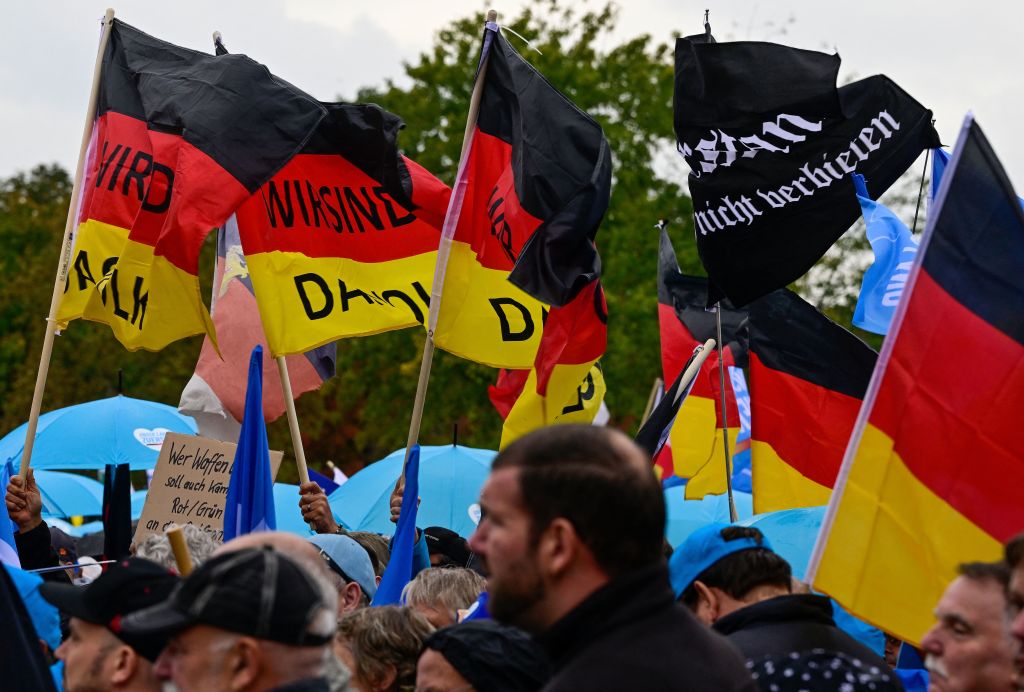FALCON POWERS – The lead candidate for Alternative für Deutschland (AfD) in the European parliamentary election has resigned from the German far-right party’s leadership, as growing divisions between Europe’s nationalist parties threaten to undermine their expected gains in next month’s ballot.
Maximilian Krah, who last weekend told the Italian newspaper La Repubblica that the SS, the Nazis’ main paramilitary force, were “not all criminals”, said in a statement on Wednesday that his comments were “being misused as a pretext to damage our party”.
His SS remark, the latest in a series of controversies involving Krah and AfD, this week prompted France’s far-right National Rally (RN) to say it would no longer sit in the same European parliamentary group as the German party after the June elections.
Marine Le Pen, RN’s leader, who has spent years trying to normalise her party to appeal to mainstream voters, confirmed on Wednesday that it needed to make a “clean break”, accusing AfD of being held hostage by its most radical elements.

“It was urgent to establish a cordon sanitaire,” Le Pen told French radio. “The AfD goes from provocation to provocation. Now it’s no longer time to distance ourselves – it’s time to make a clean break with this movement.”
The two parties currently dominate the European parliament’s radical right and Eurosceptic Identity and Democracy (ID) group, which also includes Matteo Salvini’s League in Italy, Austria’s Freedom party (FPÖ) and Vlaams Belang in Belgium.
The group’s members – many of which are still viewed as extreme in their national contexts – are on course to become the biggest winners of the European elections, with polls predicting their total seat tally could rise from 59 MEPs to about 85.
The national-conservative European Conservatives and Reformists (ECR) group, which includes Giorgia Meloni’s Brothers of Italy, Poland’s Law and Justice (PiS), Spain’s Vox, the Finns and the Sweden Democrats, is also expected to advance, to about 75 seats.
However, a major shake-up of the parliament’s rightwing and far-right groups now appears inevitable, with the formation of one or more new groups possible and little certainty as to how – or indeed whether – they will be able to work together.
The party faced mass street protests earlier this year after senior figures attended a meeting where the deportation of Germans with immigrant backgrounds was discussed, and over allegations that it harbours agents for Russia and China.
Last week, a German court ruled that domestic security services could continue to keep the AfD under surveillance as a potentially extremist party. The party denies all allegations of racism, dismissing criticism as politically motivated.
On Wednesday Krah, who is being personally investigated for alleged links to Russia and China, which he denies, said “the last thing that the party needs now is is a debate about me”.
He said it was essential that AfD maintained its unity in the run-up to the 6-9 June elections and that “for this reason, I will not be making any more campaign appearances and will be stepping down as a member of the federal committee”.
Polls suggest Le Pen’s RN, meanwhile, will easily win the European election in France, with the party’s list – headed by Jordan Bardella – set to receive 31% of the national vote, almost double the score of President Emmanuel Macron’s centrist coalition.
RN’s campaign manager, Alexandre Loubet, told local media on Tuesday that the party had had “frank discussions” with AfD, but that Bardella had taken the decision to split from the German party because “lessons have not been learned”.


